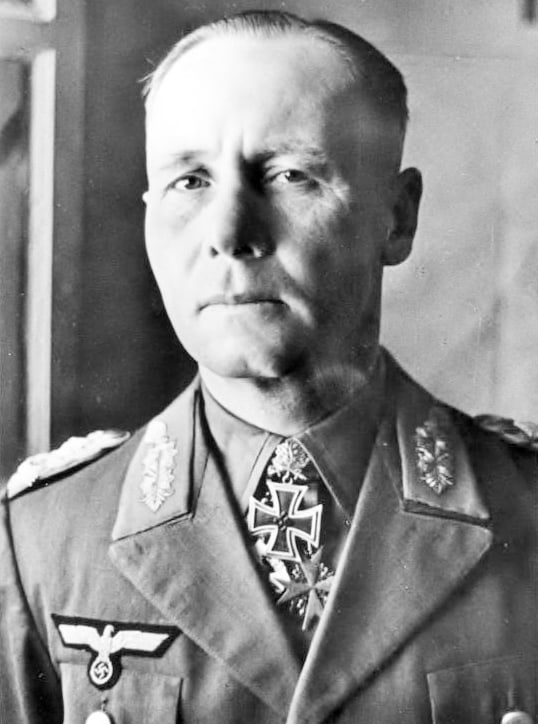Cyanide, the foundational poison of the Nazi’s own Zyklon-B gas used to exterminate the victims of the Holocaust, ironically became a favored method of suicide by leading members of the Third Reich. Faced with capture, imprisonment, or execution, dozens of individuals elected or were compelled to end their lives by ingesting cyanide.

Here are 20 Nazis who for reasons of cowardice, honor, fear, or loyalty were killed by the very poison their regime had forced upon countless innocents:

1. Erwin Rommel committed suicide to save his family from Hitler’s vengeance
Erwin Rommel (b. 1891), known popularly as the “Desert Fox”, served as Generalfeldmarschall of the Nazi Wermacht during World War II. Having joined the 124th Württemberg Infantry Regiment as a Fähnrich (Ensign) in 1910, Rommel fought throughout the First World War. During the conflict Rommel served in France, Romania, and Italy, being awarded for courage and military success the Iron Cross, both Second and later First Class, the Pour le Mérite, and ended the war with the rank of Hauptmann (Captain).
Spending the next nine years quelling revolutions and riots throughout the Weimar Republic, including the suppression of both the First and Second Bavarian Soviet Republics, Rommel acquired a reputation for efficiency and a lasting impression that the fragility of the German nation required the consolidation of national unity under strong leadership. Promoted to Oberstleutnant (Lieutenant Colonel) in 1933, Rommel was granted command of the 3rd Jäger Battalion, 17th Infantry Regiment, in which capacity he first met Hitler in September 1934. Receiving the Führer’s support and admiration, particularly for his writings on military strategy, in October 1938 Rommel was reassigned to command the Führerbegleitbatallion (Hitler’s escort battalion) at the personal request of Hitler himself. This close contact would continue throughout the invasion of Poland in 1939, during which time Rommel was promoted to Generalmajor and attended daily war briefings with the Führer.
Overseeing the successful invasion of France, Rommel spent the preponderance of the Second World War in Africa as commander of the newly created Deutsches Afrika Korps. Despite early successes in a campaign lauded by his British adversaries as chivalrous and a “war without hate”, Rommel’s requests for reinforcements were routinely denied due to the needs of Operation Barbarossa (the Nazi invasion of the Soviet Union). After significant defeats against the Allies during Operation Crusader and the Second Battle of El Alamein, Rommel was forced to withdraw from the African continent. Granted command of the “Atlantic Wall” in 1944, Rommel was deceived by the Allied deceptions under Operation Fortitude and believed the Normandy D-Day landings were a ruse to mask a future assault on the Pas-de-Calais. Once the true severity of the Allied landings became known, Rommel strongly urged Hitler to seek peace but was fiercely rebuffed.
On July 17, when the German defensive line was crumbling in northern France, Rommel was strafed by an RCAF Spitfire and suffered three fractures to his skull. Three days later, the July 20th plot to assassinate Hitler failed, in which Rommel was implicated as an associate. Whilst the historical record remains unclear regarding Rommel’s personal involvement in the plot, having opposed similar actions previously fearing martyrdom and civil war in Germany and instead expressing a preference for the arrest of the Führer, Rommel was named as co-conspirator by other members under torture. Given the option of facing the People’s Court – a kangaroo court that always decided in favor of conviction – or suicide, Rommel chose the latter to protect his family. He ingested cyanide on October 14 1944, with the official story that he succumbed to his wounds from July and was granted a state burial with full military honors and a day of national mourning.

